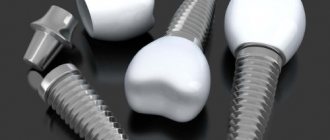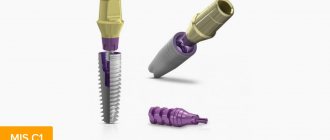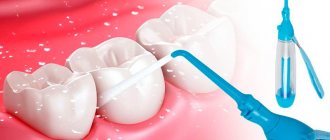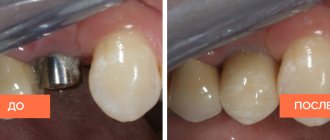Israeli or German dental implants
German implants: price and advantage
Israeli implants: pros and cons
How to choose the right implant
There are thousands of manufacturers of implantation systems in various price categories in the world - from budget to premium. Therefore, choosing a dental implant is not an easy task.
For many people, the total cost of implantation is of great importance, which depends primarily on the type of implantation system. And the type of implantation system, in turn, depends on the implantation method (classical or one-stage implantation).
XiVE and Ankylos implants
These two brands were founded in Germany, but then bought by the American concern Dentsply. Therefore, despite the fact that they are produced in Germany, they are often classified as American. Since the implants of these brands were well known on the market, after their purchase by the American concern, the names were preserved.
The implants of these two brands from Germany are distinguished by their high survival rate. For the XiVE brand this figure is 99.9%. Such indicators were achieved thanks to the use of biocompatible titanium, a special design and external coating of the rod.
Ankylos implants are universal. They are compatible with all types of abutments. Thanks to the non-standard connection of the implant and abutment, their installation is less traumatic. Since there is less damage to soft tissue during implantation, healing takes less time than with other brands of implants.
The price of XiVE and Ankylos implants is from 50 thousand rubles. These dental products are considered premium. Both brands come with a lifetime manufacturer's warranty.
German implants: price and advantage
The German Impro system allows for simultaneous implantation with immediate loading (this is not always possible, only according to the indications of a dental surgeon), and makes it possible to perform prosthetics even with a large inclination of the implants relative to each other. A special titanium alloy with maximum compatibility with human tissue eliminates the risk of rejection and allergies. In addition, the wide range of Impro implants makes it possible to perform implantation without bone grafting (if indicated). The main disadvantage is the relatively high cost, so these implants can hardly be classified as budget ones.
System characteristics
When developing the Implay line of implants, the features and advantages of the most popular dental structures from the world's best manufacturers were taken into account. The design of the prostheses is designed to make the work of dentists easier and guarantees reliable operation while maintaining the aesthetic component. Among the distinctive features of the models under consideration are:
- Surface treatment technology that allows you to create a unique relief that stimulates osseointegration and regeneration of the bone structure;
- Quality of the material – for the manufacture of pins, biologically compatible titanium of the fifth level is used, which is characterized by strength and resistance to stress;
- The use of variable double threads, which ensures tight fixation of the implant in the alveolar bed with a minimum amount of manipulation by the dentist performing the operation;
- An extended plane of the area between the apical and middle segments, eliminating the possibility of rotation of the prosthesis with a two-stage restoration technique;
- The presence of a neck with crossed grooves, which has an increased implantable surface area. The growth of bone tissue into the depressions prevents resorption in this area;
- A special hexagonal connection with the abutment, which allows you to adapt the retainer, eliminate infection of the canal and position the element in the desired geometric plane;
- A special shape of the implant, expanding the range of orthopedic options. The porous surface created by removing the titanium oxide film actively interacts with the surrounding tissue;
- Osteotomic function of the upper part of the prosthesis, necessary during bone grafting.
Practice shows that Implay implants provide high levels of osseointegration, support for gum tissue, which is important from an aesthetic point of view, as well as primary stability sufficient for immediate loading.
Israeli implants: pros and cons
Israeli implantation systems were once quite popular due to their low cost, but now doctors prefer other manufacturers. The reason is not only that Israeli systems are not suitable for many clinical cases, thereby limiting the capabilities of the implant surgeon, but also in the quality of the implants themselves. An example is the presence of aluminum and vanadium in the alloy, which reduce biocompatibility. In addition, other manufacturers use more modern technologies, for example, they impregnate the surface of implants with a nano-layer of calcium phosphate, fluorine, etc. for accelerated engraftment, which Israeli colleagues cannot boast of.
Possibility of use
The considered dental structures are used to restore the dentition in case of loss of one or more units, as well as in case of complete edentia - as part of the protocol for installing conditionally removable dentures. Indications that determine the need for implantation include:
- Formation of local defects in any area of the jaw;
- The presence of included and terminal developmental anomalies;
- Complete edentia of the upper or lower jaw;
- The need to restore the aesthetics of a smile.
The method of orthopedic treatment is determined based on the clinical picture, formed on the basis of the results of a preliminary examination. During the diagnosis, the doctor analyzes the features of the anatomical structure of the dentofacial apparatus, determines the factors that caused adentia, as well as the condition of the bone tissue. If the volume is insufficient, osteoplastic surgery can be performed to eliminate the consequences of the development of atrophic processes.
The procedure for implanting Implay implants takes no more than one hour. When implementing a standard two-stage protocol, the pause between operations is 4-6 months, allotted for the engraftment of the titanium rod into the bone tissue structure. The express method allows for the installation of an artificial crown already on the second or third day after surgery, which is convenient for patients whose priority is maintaining the aesthetics of their smile during treatment.
How to choose the right implant
When choosing an implantation system, you should pay attention to:
- quality of production (imported implants have improved characteristics);
- availability of guarantees;
- availability of certificates;
- the ability to immediately install a crown on the implant (if necessary);
- the ability to do without bone grafting.
It is not necessary to understand the types of dental implants, methods of their installation, sizes, shapes and other characteristics. The main thing is to choose a clinic and a good specialist who will select the optimal treatment option.
Top 10 reasons why you should choose an implant over a dental bridge
1. Installation of implants is painless
The installation of a dental implant is painless, since local anesthesia is used, and the procedure takes an average of 20 minutes, which allows for minimal tissue trauma, shortening the rehabilitation period and the tissue healing process in the next few days.
2. Minimal surgical intervention
The installation of a dental implant involves a minimal amount of tissue, so the patient does not need to spend a long time in the dentist’s chair. The procedure itself for implanting one dental unit can take, depending on the complexity, from 15 minutes (when restoring the front teeth) to 40 minutes (when an artificial root is implanted in place of the lost outer chewing teeth). In modern dentistry, several implantation options are presented, including one-step and one-stage procedures. They allow you to avoid repeated surgical procedures for prosthetics and gum formation.
3. Minimal risk Installation of a high-quality dental implant is successful in 98-99% of cases. Much of the success is undoubtedly related to the qualifications of the doctor, as well as the quality of the materials used and the brand of the implant. However, it is important for the patient to remember that the service life of the artificial root directly depends on careful care and respect for one’s health. In the long term, the implant can last more than 20 years. For comparison, it can be noted that when restoring teeth with a fixed bridge supported by one’s own teeth, the risk of loosening and infection is greater, and their service life is limited to 4-8 years.
4. The implant preserves healthy teeth
Installing a dental implant allows you to save adjacent teeth from grinding, preparation, nerve removal and root extraction. After a long period of using implants, neighboring teeth do not experience overload, as when wearing a dental bridge, so they are protected from loosening, injury and loss.
5. Preservation of bone tissue After a tooth is removed, in the area of the gap formed, the bone tissue is no longer supplied with nutrients and becomes smaller in volume. The gum level noticeably sags up to 1 mm per year, which ultimately can cause weakening of the ligamentous apparatus of other teeth. The implant puts a natural load on the bone tissue area, stimulates further functioning and prevents the death of microcapillaries and blood vessels.
6. The implant imitates a natural tooth
A dental implant more naturally restores a lost tooth in terms of functionality, as it is anchored inside the bone, like your own tooth root. The crown is also closer in appearance and can also withstand greater loads than removable dentures.
7. Reliable and Safe Solution With dental implants, chewing forces are better supported and balanced across the entire dentition, reducing stress on individual units and the jaw joint.
Successful installation is possible by choosing a higher quality implant or a proven, reliable brand. Top manufacturers include implants Alpha-bio, Nobel Biocar, Straumann and others. However, the healing rate and duration of service may vary depending on your health status. Smoking, diabetes, gum inflammation, chronic blood and bone diseases greatly affect the results of the operation. They can reduce survival rates by up to 90%. This is because additional treatment must be performed before any attempt to place an implant.
8. More durable results Compared to other types of dentures, a dental implant has a longer service life - more than 20 years. Removable dentures, as a rule, are replaced after 3-5 years, clasp dentures can last about 6 years, dental bridges - up to 8. The reason for replacing the structure is most often bone resorption and changes in the contour of the gums.
To restore lost teeth, there is no need to replace each unit. If several teeth in a row are missing, then using a dental bridge supported by implants will effectively eliminate the defect. A dental bridge has high aesthetic values, a strong and durable frame. To prevent the development of atrophy, implants are selected to fill the gap with the most appropriate number of artificial supports. To restore chewing teeth, more massive implants with a larger diameter are required. The distance between them must be at least 3 mm. This way you can reduce the number of units used without losing quality. If a complete restoration of the jaw is planned using a bridge that includes 12-14 teeth, then 4-6 implants are used to fix it. The prosthetic technology (All-on 4 and All-on 6) has been clinically proven to be effective and preserves the gingival contour for more than 5 years of use, and the service life of the prosthesis is more than 10-20 years.
9. High level of comfort A dental implant is a solution that provides functional and aesthetic comfort. The places where the crown is attached are invisible and hidden by the gum. You need to care for an implant like you would your own tooth, while removable dentures are more demanding to care for and their use is noticeable to others.
10. High biocompatibility Modern implants are made from safe and biocompatible materials. The main metal for creating artificial roots is titanium, a durable, refractory and bioinert material. Impurities are used in minimal quantities, which reduces the risk of developing allergies. Spraying of minerals, a hydrophilic surface, and various types of threads allow the use of implants in complex clinical situations. The success rate of implantation surgery is 98% because the titanium dental implant is organically compatible with the human body.











